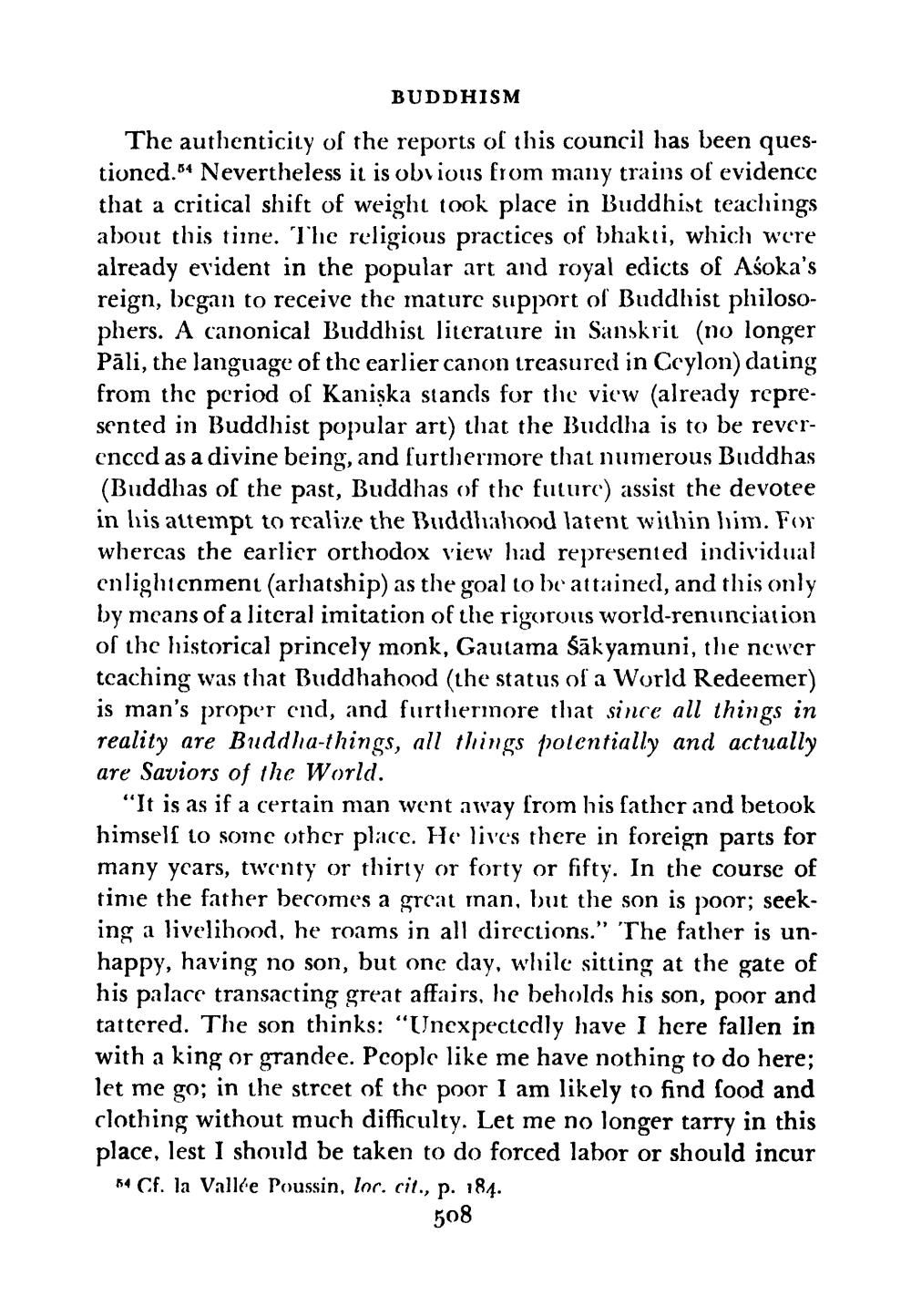________________
BUDDHISM
The authenticity of the reports of this council has been questioned. Nevertheless it is obvious from many trains of evidence that a critical shift of weight took place in Buddhist teachings about this time. The religious practices of bhakti, which were already evident in the popular art and royal edicts of Aśoka's reign, began to receive the mature support of Buddhist philosophers. A canonical Buddhist literature in Sanskrit (no longer Pāli, the language of the earlier canon treasured in Ceylon) dating from the period of Kanişka stands for the view (already represented in Buddhist popular art) that the Buddha is to be reverenced as a divine being, and furthermore that numerous Buddhas (Buddhas of the past, Buddhas of the future) assist the devotee in his attempt to realize the Buddhahood latent within him. For whereas the earlier orthodox view had represented individual enlightenment (arhatship) as the goal to be attained, and this only by means of a literal imitation of the rigorous world-renunciation of the historical princely monk, Gautama Sākyamuni, the newer teaching was that Buddhahood (the status of a World Redeemer) is man's proper end, and furthermore that since all things in reality are Buddha-things, all things potentially and actually are Saviors of the World.
"It is as if a certain man went away from his father and betook himself to some other place. He lives there in foreign parts for many years, twenty or thirty or forty or fifty. In the course of time the father becomes a great man, but the son is poor; seeking a livelihood, he roams in all directions." The father is unhappy, having no son, but one day, while sitting at the gate of his palace transacting great affairs, he beholds his son, poor and tattered. The son thinks: "Unexpectedly have I here fallen in with a king or grandee. People like me have nothing to do here; let me go; in the street of the poor I am likely to find food and clothing without much difficulty. Let me no longer tarry in this place, lest I should be taken to do forced labor or should incur 54 Cf. la Vallée Poussin, loc. cit., p. 184.
508




